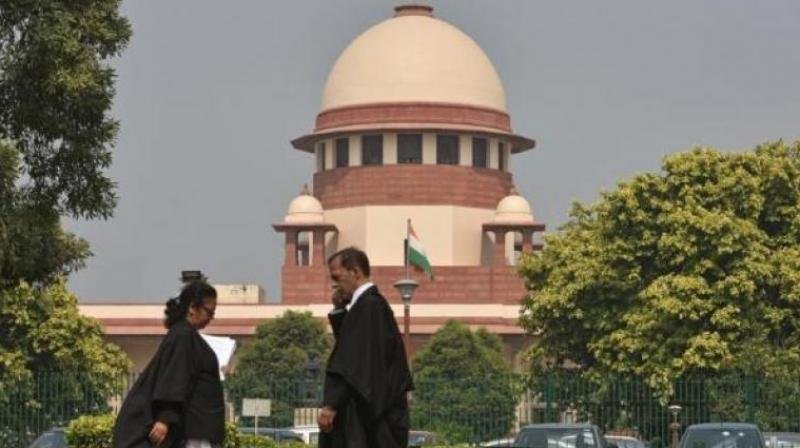Manmohan Singh assures industry of economic recovery
புதுடில்லி:”நாட்டின் பொருளாதார வளர்ச்சி, மிகவும் கவலைக்குரிய நிலையில் உள்ளது. இந்த நிலையை, சரி செய்து, மீண்டும் வளர்ச்சி பாதைக்கு திரும்புவதற்கு, தேவையான உறுதியான நடவடிக்கைகளை, மத்திய அரசு தொடர்ந்து எடுக்கும்,” என்று பிரதமர் மன்மோகன் சிங் பேசினார்.
சீர்திருத்த நடவடிக்கை:டில்லியில்,”அசோசெம்’ அமைப்பின், கருத்தரங்கு நடைபெற்றது. இதில் கலந்து கொண்டு, பிரதமர் மன்மோகன் சிங் பேசியதாவது:நாட்டில் பொருளாதார மந்த நிலை, அதிகமாக காணப்படுகிறது. இந்தியாவின் பொருளாதார வளர்ச்சி என்பது, திருப்திகரமாக இல்லை. இது கவலையளிக்கிறது. ஆனாலும், இதை சரி செய்தே தீருவது என்ற உறுதியுடன்,மத்திய அரசு செயலாற்றிக் கொண்டு வருகிறது. யாரும் பீதியடையத் தேவையில்லை என்ற வகையில், பொருளாதார சீர்திருத்த நடவடிக்கைகளில், அரசு முனைப்புடன் செயல்பட்டு வருகிறது. எனவே, நாட்டின் பொருளாதாரம், மீண்டும் வளர்ச்சி பாதையில் பயணிக்கும் நாள், வெகுதூரத்தில் இல்லை என்ற நம்பிக்கை உள்ளது.இந்தியாவின் பொருளாதார வளர்ச்சி என்பது, 6 சதவீதத்தை விட குறையும் என்று, உலக வங்கி கணித்துள்ளது. இது ஏற்கத்தக்கது அல்ல.
கணிப்பு:உலக வங்கி கூறும் அளவுக்கு வளர்ச்சி குறைந்து விடாது. நடப்பு நிதியாண்டிற்கான பட்ஜெட்டில், நாட்டின் பொருளாதார வளர்ச்சி, 6.5 சதவீதம் வரை இருக்கும் என்று, கூறப்பட்டிருந்தது.இந்த கணிப்பில், மாற்றம் வரலாம் என்பது போல, நிலைமைகள் உள்ளன. அனேகமாக, நடப்பு ஆண்டிற்கான பட்ஜெட்டில் கூறப்பட்டதை விட, பொருளாதார வளர்ச்சி சற்று குறைவாக காணப்படும்.
விவசாயம்:தொழில்துறை வளர்ச்சி, இன்னும் தீவிரம் அடையாமல் உள்ளது. அதேசமயம், விவசாயத் துறையில் நல்ல முன்னேற்றம் தென்படுகிறது. இந்த ஆண்டு, நாட்டின் விவசாயத் துறையில், 4 சதவீதம் வரை வளர்ச்சி இருக்கலாம் என்று, மத்திய அரசு எதிர்பார்க்கிறது.கிராமப்புறங்களில், விவசாயத் துறையில் மிக அதிக அளவுக்கு வளர்ச்சி, காணப்படும். அப்படி பார்க்கையில், விவசாயத் துறை மூலமாக, தொழில்துறையில் வளர்ச்சி ஏற்பட வாய்ப்பு உள்ளது.டாலருக்கு நிகரான ரூபாயின் மதிப்பு, குறைந்து கொண்டே வருகிறது. இதற்கு, அமெரிக்க மத்திய வங்கி எடுத்து வரும் நடவடிக்கையும் காரணம். இந்தியா மட்டுமின்றி, துருக்கி, தென் ஆப்ரிக்கா, பிரேசில் போன்ற நாடுகளின் கரன்சி மதிப்பும், மிகவும் குறைந்து போய் காணப்படுகிறது.தவிர, இந்தியாவில், நடப்புக் கணக்கு பற்றாக்குறையும் அதிகமாக உள்ளது. இதுவும், டாலருக்கு நிகரான ரூபாயின் மதிப்பு, குறைவதற்கு ஒரு முக்கிய காரணம்.
கட்டுப்பாடுகள்:ரூபாயின் மதிப்பு குறைவதை கட்டுப்படுத்துவதற்கு, தங்கம் மற்றும் கச்சா எண்ணெய்க்கான தேவையை, கணிசமான அளவில், குறைப்பதற்கு மத்திய அரசு நடவடிக்கை எடுத்து வருகிறது.கடந்த ஜூன் மாதம் முதல், தங்க இறக்குமதிக்கு, கட்டுப்பாடுகள் விதிக்கப்பட்டுள்ளன. இதனால், தங்கத்தின் இறக்குமதி, கட்டுப்பாட்டுக்குள் உள்ளது. நாட்டின் ஏற்றுமதியை அதிகரிப்பதற்கு தேவையான, அனைத்து நடவடிக்கைகளையும் மேற்கொள்ள, மத்திய அரசு தீவிரமாக உள்ளது. குறிப்பாக, இன்னும் ஓராண்டிற்குள், இரும்புத் தாது போன்றவற்றின் ஏற்றுமதியை, மறுபடியும் அதிகரிப்பதற்கு, நடவடிக்கைகள் மேற்கொள்ளப்படும்.
நிலக்கரி:எரிசக்தி துறையில், அதிகளவில் முதலீடுகளை கொண்டு வருவதற்கு, முயற்சிகள் எடுக்கப்பட்டு வருகின்றன. அனல் மின் நிலையங்களுக்கு, தேவையான நிலக்கரியை, எந்தவித தாமதமும் இன்றி அளிக்கும்படி, அறிவுறுத்தப்பட்டுள்ளது.தேசிய ஜனநாயக கூட்டணி ஆட்சியை விட, கடந்த ஒன்பது ஆண்டுகளாக நடைபெற்று வரும், ஐக்கிய முற்போக்கு கூட்டணி அரசில், பொருளாதார வளர்ச்சி, நன்றாகவே உள்ளது. தேசிய ஜனநாயக கூட்டணி ஆட்சியில், 5.7 சதவீதமாக இருந்த பொருளாதார வளர்ச்சி, ஐக்கிய முற்போக்கு கூட்டணி ஆட்சியில், 8 சதவீதமாக உயர்ந்து இருந்தது.இவ்வாறு, பிரதமர் மன்மோகன் சிங், பேசினார்.
English Summary:
Manmohan Singh assures industry of economic recovery
The prime minister observed that the most immediate cause of worry was the recent volatility in foreign exchange markets, which was caused due to global markets reacting to the likelihood of a withdrawal of Quantitative Easing-III by the US Federal Reserve Bank. Prime Minister Manmohan Singh Friday assured captains of industry that the government will not leave any stone unturned to improve the economy and expressed hope that the Current Account Deficit (CAD) will come down to 2.5 percent in the coming years. Admitting that the country is going through a difficult period, he said: “I know that business is deeply concerned about the slowdown in our economy. It is looking to the government to bring the economy back to a higher growth path. This, I believe, is a legitimate expectation and is also upper-most in our mind. “When things are going well, government should interfere as little as possible. When things are going bad, as they seem to be at present, it is the responsibility of the government to become more pro-active,” he said at the 92nd annual general meeting of Assocham here. The prime minister observed that the most immediate cause of worry was the recent volatility in foreign exchange markets, which was caused due to global markets reacting to the likelihood of a withdrawal of Quantitative Easing-III by the US Federal Reserve Bank. “Large volumes of funds were withdrawn from emerging markets and there was a depreciation in many emerging market countries including Turkey, Brazil and South Africa. We too experienced a significant depreciation in the exchange value of the rupee. In our case, it was perhaps exacerbated by the fact that our current account deficit in the balance of payment had increased to 4.7 percent of GDP in 2012-13. “Ideally we should bring the current account deficit down to 2.5 percent of our GDP. It is clearly not possible to do this in one year, but I expect that the current account deficit in 2013-14 will be much lower than the 4.7 percent level recorded last year. “It will decline further next year. We will use all policy instruments available — fiscal, monetary and supply side interventions to ensure that the Current Account Deficit declines further over time.” He said the government is committed to bringing the current account deficit under control by addressing both the demand side and the supply side of the problem. On the demand side, he said, “we need to reduce the demand for gold and the demand for petroleum products – the two biggest components of our trade deficit”. He said gold imports declined sharply in June while on petroleum products, the government has last year begun a process of correcting the prices. “The gradual correction that was taking place in diesel prices has reduced the gap in under-recoveries from almost Rs.13 per litre to less than Rs.2 per litre.” The government has targeted fiscal deficit of 4.8 percent of GDP during 2013-14 and announced continuing reductions of about half a percent each year subsequently, up to 2016-17. He, however, said the country has targeted 6.5 percent growth at the time of the budget this fiscal (2013-14). “But it looks as if it will be lower than that.” He added: “What is important is that the economy should turn around from 5 percent achieved last year. There is a very good chance that we can achieve that with good agricultural performance and the effect of the various actions we are taking on infrastructure.”




